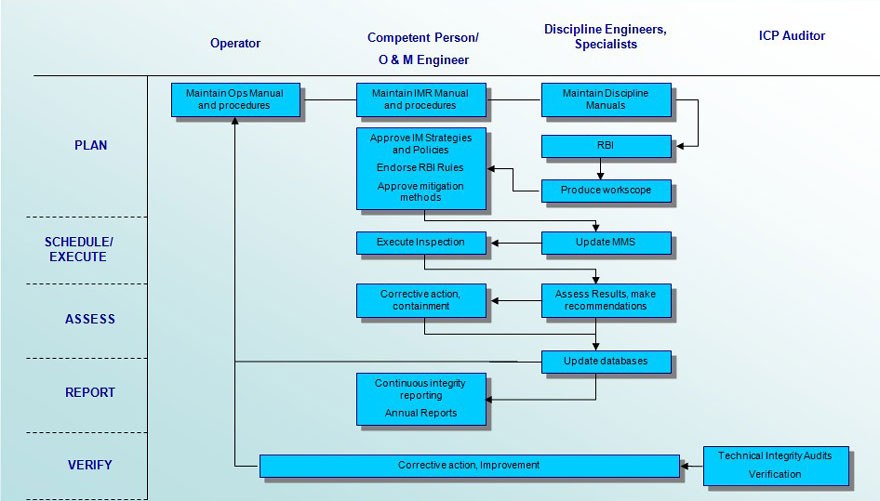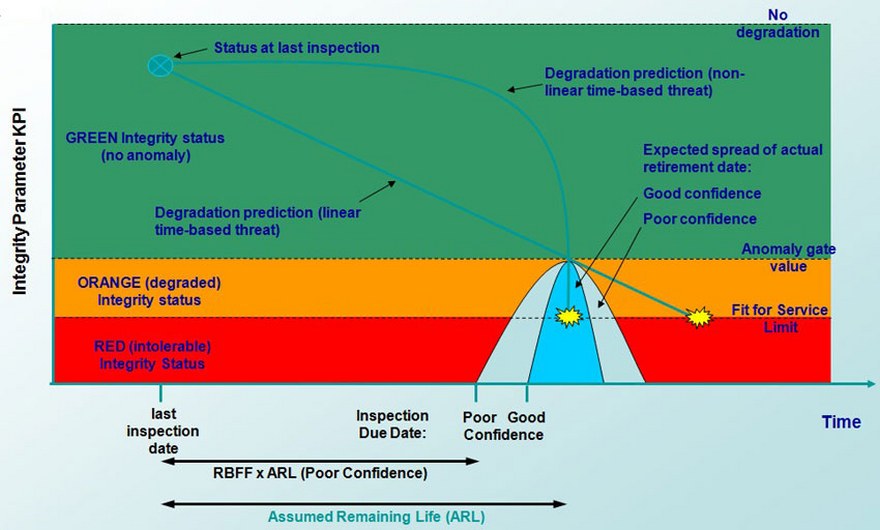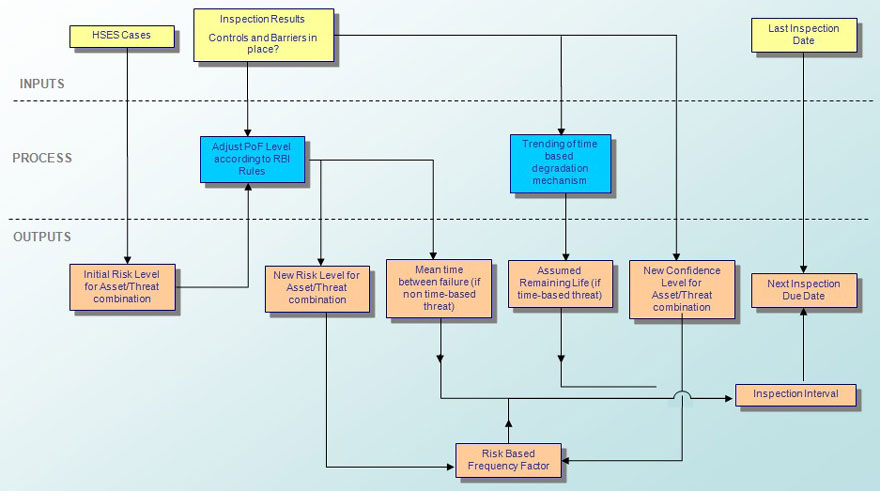Roles and Responsibilities in the Asset Integrity Management Process
- Definition of Roles and Responsibilities: Necessary for effective Integrity Management.
- Will vary depending on validity of Operators' existing management structure.
Below is an example:

RBI Concept

RBI Process, Inputs and Outputs

Document Integrity Management Strategies and RBI Guidelines
- Integrity Management Strategies, as outlined in this example, would be formally documented before the IM System is considered operational.
- RBI Guidelines must be documented for proper control of the process.
Produce Performance Standards
- Performance Standards shall be produced for critical assets.
- Performance Standards define the purpose of the equipment and its required integrity envelope, as well as how performance is measured and assured.
- Performance Standards are used as a guideline by internal or external integrity auditors.
Produce Integrity Management Procedures
- Once Integrity Management Strategy and RBI Guidelines have been defined, the 'how-to-do-it' documents (procedures and work instructions) are required.
- Some typical Integrity Management Procedures are:
- Anomaly Management Procedures.
- Workscope Preparation Procedures.
- Event-Triggered Action Procedures (Marine Vessel Impact, Earthquake, Fishing Incident, 3rd-Party Encroachment, Extreme Weather, etc).
- Monitoring Procedures.
- Data Management Procedures.
- Integrity Status Reporting Procedures.
Establish Integrity Management Software, Databases
- Quality Data is fundamental for Integrity Management in terms of: Storage, Ease of Retrieval and Data integrity, i.e. data which is complete, accurate and up-to-date.
- In most cases (the exception is a small asset base with few integrity threats), an organised database with an easy to use front-end application is necessary for effective Asset Integrity Management.
- Various applications and databases are available on the market, some catering to specific equipment types (e.g. Pipelines), some only catering to certain steps in the AIM Process - e.g. RBI.
- The situation is dynamic and must be effectively managed.
- Some Operators have incomplete or ineffective systems in place.
- SBS provides a very efficient "hosted" data management system which avoids the need to define, purchase and maintain an in-house system.
A simple evaluation study, carried out by an SBS asset integrity specialist to establish
the most appropriate system, is recommended.
the most appropriate system, is recommended.
